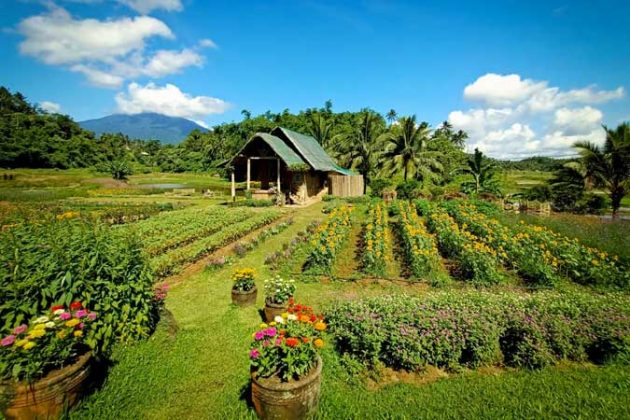Agri-Tourism A Blend Of Agriculture And Tourism
Agriculture tourism is emerging as a lucrative industry, thanks to the greater mobility now being enjoyed by children. With the easing of travel restrictions and the rising interest in experiential learning, more and more families are opting for agri-tourism activities as a way to bond with nature and learn about farming.

Agri-tourism is a unique blend of agriculture and tourism, offering visitors the opportunity to experience the rural lifestyle firsthand. It allows them to engage in various farm activities, such as picking fruits, harvesting crops, and even taking care of livestock. By participating in these activities, children get to learn about the importance of agriculture in our daily lives, while also enjoying a fun-filled vacation.
What is agri-tourism?
Agri-tourism refers to any agricultural-based activity that attracts tourists to rural areas. It provides visitors with an opportunity to learn about agriculture, experience farm life, and support local farmers. This form of tourism has gained significant popularity in recent years due to its educational and recreational value.
Ideas for agri-tourism activities:
1. Fruit Picking: Many agri-tourism destinations offer fruit-picking experiences, where visitors can pick fresh fruits directly from the trees. This activity not only allows them to enjoy the sweetness of ripe fruits but also educates them about different fruit varieties and their cultivation.
2. Farm-to-Table Dining: Farm-to-table dining experiences are becoming a trend in the agri-tourism industry. Visitors can enjoy meals made from fresh ingredients sourced directly from the farm. This not only provides them with a unique culinary experience but also promotes sustainable farming practices.
3. Animal Interaction: Children love animals, and agri-tourism provides the perfect opportunity for them to interact with farm animals. They can feed, pet, and even milk cows, goats, and other livestock. This hands-on experience helps children develop a deeper understanding and appreciation for animals and their role in agriculture.
4. Farm Stays: To fully immerse in the farm life, many agri-tourism destinations offer farm stays. Visitors can stay overnight on a farm, experiencing the daily routine of farmers and participating in farm activities. This close encounter with nature and farming processes enables them to gain valuable insights into sustainable agriculture.
Recommendations for a successful agri-tourism experience:
1. Research Destinations: Before embarking on an agri-tourism adventure, it is essential to research different destinations and choose one that aligns with your interests and preferences. Consider the types of activities offered, the availability of lodging and amenities, and the reputation of the destination in terms of sustainable farming practices.
2. Plan Ahead: Agri-tourism destinations often have limited availability, especially during peak seasons. To ensure a smooth and enjoyable experience, it is recommended to book your visit well in advance and plan your itinerary accordingly. This will help you secure your preferred activities and accommodations.
3. Pack Appropriately: When visiting an agri-tourism destination, it is important to pack appropriately for outdoor activities. Comfortable clothing, sunscreen, insect repellent, and closed-toe shoes are essential items to include in your packing list. Additionally, bringing a reusable water bottle and some snacks can come in handy during your farm adventures.
4. Respect Nature and Farming Practices: While participating in agri-tourism activities, it is crucial to respect nature and the farming practices of the destination. Follow the instructions provided by the farm owners or guides, and be mindful of the environment. Avoid damaging crops or disturbing animals, ensuring that future visitors can also enjoy the same experiences.
Listicle of the benefits of agri-tourism:
1. Educational Value: Agri-tourism provides a unique educational experience, allowing children and adults to learn about agriculture, farming techniques, and sustainable practices. It helps in creating awareness about the importance of agriculture in our lives and encourages future generations to appreciate and support the farming community.
2. Connection with Nature: Agri-tourism activities take place in natural and peaceful environments, allowing visitors to reconnect with nature. Spending time in the countryside, surrounded by greenery and fresh air, can have a positive impact on mental and physical well-being, reducing stress and promoting relaxation.
3. Local Economy Support: By participating in agri-tourism activities, visitors contribute to the local economy, supporting small-scale farmers and rural communities. The income generated from tourism helps these communities sustain their agricultural practices and maintain their way of life.
4. Family Bonding: Agri-tourism offers families the opportunity to spend quality time together, away from the distractions of modern life. Engaging in farm activities, enjoying farm-fresh meals, and making new memories creates strong bonds and cherished moments that last a lifetime.
Question & Answer:
Q: Is agri-tourism suitable for all age groups?
A: Yes, agri-tourism activities can be enjoyed by people of all age groups. Whether you are a young child, a teenager, or an adult, there are various activities tailored to suit different interests and abilities.
Q: Are agri-tourism destinations only available in rural areas?
A: Agri-tourism destinations are predominantly located in rural areas, as they primarily focus on showcasing agricultural practices. However, some urban farms and agricultural parks offer similar experiences, allowing city dwellers to learn about farming without traveling long distances.
Q: What are the benefits of introducing children to agri-tourism?
A: Introducing children to agri-tourism can have numerous benefits. It helps them understand where their food comes from, promotes healthy eating habits, instills a sense of responsibility towards the environment, and provides hands-on learning experiences that cannot be replicated in a classroom.
Summary of agri-tourism:
Agriculture tourism, also known as agri-tourism, is a rapidly growing industry that offers visitors the opportunity to experience farming and rural life. It provides educational value, promotes sustainable farming practices, supports local economies, and strengthens family bonds. With the increasing interest in experiential learning and the ease of travel, agri-tourism is set to thrive and continue benefiting both tourists and farmers alike.

Post a Comment for "Agri-Tourism A Blend Of Agriculture And Tourism"